
Self
An epic exploration of the Czechoslovak New Wave cinema of the 1960s and 70s, structured around a series of conversations with one of its most acclaimed exponents - Closely Observed Trains director Jiří Menzel.

Himself
Ester Krumbachová - a costume designer, screenwriter, director; one of the boldest personalities of the Czech New Wave. She worked in theatre, she was a writer and an illustrator. She co-created films such as O slavnosti a hostech (1966), Sedmikrásky (1966), Vsichni dobrí rodáci (1969), Pension pro svobodné pány (1968), Valerie a týden divu (1970), Slamený klobouk (1972) and many others. In the 1960s, she was a 'pivot' of the art scene in Prague, attracting artists who were on the threshold of their career, just setting out to find their own form of self-realization. Those who underwent her tutelage remember her forever. Director Vera Chytilová talks to those who knew Ester Krumbachová, who worked with her, befriended her, loved her. She sets off on a search that is to end by answering the question: Who was Ester?

Screenplay
Otakar Vávra walks through Prague in front of the camera and with the camera, and remembers those who in the 1930s determined the pulse of the cultural and political life of that time.

Story
Otakar Vávra walks through Prague in front of the camera and with the camera, and remembers those who in the 1930s determined the pulse of the cultural and political life of that time.

Director
Otakar Vávra walks through Prague in front of the camera and with the camera, and remembers those who in the 1930s determined the pulse of the cultural and political life of that time.

Self
Otakar Vávra walks through Prague in front of the camera and with the camera, and remembers those who in the 1930s determined the pulse of the cultural and political life of that time.

Director

Director
Emperor Francis Joseph I is about to arrive in Prague, and among those who came to Stromovka to welcome him is Veronika Pavlitová. She wants to submit a request for clemency for her imprisoned father to the emperor, because she is barely able to support herself and her siblings on the meager salary of a seamstress. By chance, the girl meets Božena Němcová, whom she admires immensely. She becomes her friend and confidant for a while. However, police director Paümann, who has been following Božena Němcová for a long time, takes advantage of the naivety of the young girl. Veronika, in her simple-mindedness, tells him many things. Only later will she understand how she was abused.

Writer
At the turn of the 10th and 11th centuries Boleslav's kingdom fell apart in the fratricidal war between the Přemyslovci and the other clans the main profiteer of this being the German emperor. At that time it seemed as if the Czech state and the lineage of its princes was awaiting its end..." It is with these words that the tale of this film begins, whose narrative is based upon the the play by František Hrubín of the same name.

Director
At the turn of the 10th and 11th centuries Boleslav's kingdom fell apart in the fratricidal war between the Přemyslovci and the other clans the main profiteer of this being the German emperor. At that time it seemed as if the Czech state and the lineage of its princes was awaiting its end..." It is with these words that the tale of this film begins, whose narrative is based upon the the play by František Hrubín of the same name.

Screenplay
Saxony, devastated by the Thirty Years' War, is led by the comedy troupe of the principal Fortunato. The student Vavrinec has fled Bohemia and greatly values the text of Shakespeare's tragedy Romeo and Juliet, which he has acquired on his wanderings around the world.

Director
Saxony, devastated by the Thirty Years' War, is led by the comedy troupe of the principal Fortunato. The student Vavrinec has fled Bohemia and greatly values the text of Shakespeare's tragedy Romeo and Juliet, which he has acquired on his wanderings around the world.

Screenplay

Story

Director

Writer
A remake of Vávra's 1948 atomic age thriller Krakatit.

Director
A remake of Vávra's 1948 atomic age thriller Krakatit.

Director
A story of love and honor that takes place during the mid-nineteenth century during revolutions, as well as economic, political, and social hypocrisy. Two extraordinary but lonely artists share a passionate love, as evidenced by the preserved letters that they exchanged.
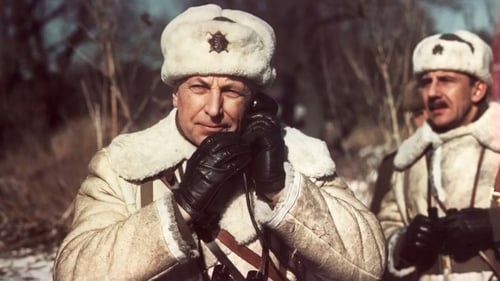
Screenplay

Story

Director
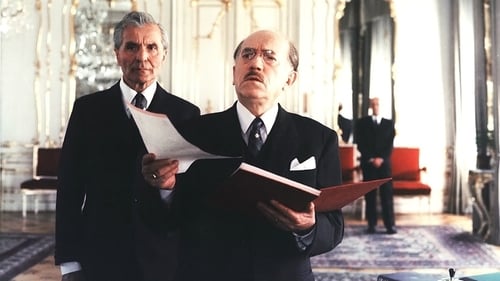
Screenplay
This feature film based on the events of 1938 is a chronicle of the futile efforts of the Czechoslovak president Edvard Benes (Jirí Pleskot), politicians and ordinary citizens, to save the independence and the territorial integrity of the state from the advance of Hitler's Germany. On the 29th of March 1938 the leader of the Sudeten Germans Henlein (Werner Ehrlicher) has a meeting with Hitler (Gunnar Möller). Hitler orders him to intensify pressure on the Czechoslovak government. On the 24th of April in Carlsbad, the Sudetendeutsche Partei (Sudeten German Party) decides upon eight demands that are unacceptable to the Czechoslovak President, since they would ultimately lead to the break-up of the Republic. Benes still shows a certain willingness to negotiate, and Henlein resents this. The Germans are determined to make further negotiations impossible through incidents and violence.

Story
This feature film based on the events of 1938 is a chronicle of the futile efforts of the Czechoslovak president Edvard Benes (Jirí Pleskot), politicians and ordinary citizens, to save the independence and the territorial integrity of the state from the advance of Hitler's Germany. On the 29th of March 1938 the leader of the Sudeten Germans Henlein (Werner Ehrlicher) has a meeting with Hitler (Gunnar Möller). Hitler orders him to intensify pressure on the Czechoslovak government. On the 24th of April in Carlsbad, the Sudetendeutsche Partei (Sudeten German Party) decides upon eight demands that are unacceptable to the Czechoslovak President, since they would ultimately lead to the break-up of the Republic. Benes still shows a certain willingness to negotiate, and Henlein resents this. The Germans are determined to make further negotiations impossible through incidents and violence.

Director
This feature film based on the events of 1938 is a chronicle of the futile efforts of the Czechoslovak president Edvard Benes (Jirí Pleskot), politicians and ordinary citizens, to save the independence and the territorial integrity of the state from the advance of Hitler's Germany. On the 29th of March 1938 the leader of the Sudeten Germans Henlein (Werner Ehrlicher) has a meeting with Hitler (Gunnar Möller). Hitler orders him to intensify pressure on the Czechoslovak government. On the 24th of April in Carlsbad, the Sudetendeutsche Partei (Sudeten German Party) decides upon eight demands that are unacceptable to the Czechoslovak President, since they would ultimately lead to the break-up of the Republic. Benes still shows a certain willingness to negotiate, and Henlein resents this. The Germans are determined to make further negotiations impossible through incidents and violence.

Screenplay
A ruthless inquisitor spins the superstitions of local peasants into religious heresy, finding cause to accuse dozens of innocent men and women of witchcraft. The inquisitor targets nobles and merchants, whose property and goods are then confiscated. After suffering an array of medieval tortures, most of the accused confess—only to be burned alive at the stake as helpless villagers watch. With its bold and striking cinematography, the film captures scenes of both daring nudity and brutal torture.

Director
A ruthless inquisitor spins the superstitions of local peasants into religious heresy, finding cause to accuse dozens of innocent men and women of witchcraft. The inquisitor targets nobles and merchants, whose property and goods are then confiscated. After suffering an array of medieval tortures, most of the accused confess—only to be burned alive at the stake as helpless villagers watch. With its bold and striking cinematography, the film captures scenes of both daring nudity and brutal torture.

Screenplay
Twelve-year old Kosta, a little boy of an overactive imagination, makes friends with equally sensitive eleven-year old Blanka. Fantasy leads the two children to the forgotten attic in the house of Blanka's parents. For them, this is the forbidden "thirteenth chamber," and to Kosta, an old glass vase becomes a magic ball with the help of which he can play his favorite play "on fate". The children observe the adults and unconsciously sense that something has gone wrong in Blanka's family. Her dad is a physician and her mother is not happy with him, still recollecting her former wooer Petr who left for India upon his graduation.

Director
Twelve-year old Kosta, a little boy of an overactive imagination, makes friends with equally sensitive eleven-year old Blanka. Fantasy leads the two children to the forgotten attic in the house of Blanka's parents. For them, this is the forbidden "thirteenth chamber," and to Kosta, an old glass vase becomes a magic ball with the help of which he can play his favorite play "on fate". The children observe the adults and unconsciously sense that something has gone wrong in Blanka's family. Her dad is a physician and her mother is not happy with him, still recollecting her former wooer Petr who left for India upon his graduation.

Screenplay
A lyrical story about first love, death and disappointment, based on a poem of the same title.

Director
A lyrical story about first love, death and disappointment, based on a poem of the same title.

Screenplay
A man returns to his native village in search of renewed faith and his old girlfriend. But she, now a middleaged woman, does not recognise him and he goes home, more disillusioned than ever.

Director
A man returns to his native village in search of renewed faith and his old girlfriend. But she, now a middleaged woman, does not recognise him and he goes home, more disillusioned than ever.

Story

Screenplay

Director

Screenplay
When a man stops at a motel one evening in 1961, his tormenting behavior drives one of the people present at the motel to remember his experiences in a concentration camp during WWII.

Director
When a man stops at a motel one evening in 1961, his tormenting behavior drives one of the people present at the motel to remember his experiences in a concentration camp during WWII.

Screenplay
This lyrical comedy story takes place in two hot days in the small South Bohemian village. On the shore of a small pond, summer guests and local youth meet. As is typical of the works of Hrubín, it is a conflict of youth and age, life and death, represented by the medical student Zuzana and her beloved Jirka.

Director
This lyrical comedy story takes place in two hot days in the small South Bohemian village. On the shore of a small pond, summer guests and local youth meet. As is typical of the works of Hrubín, it is a conflict of youth and age, life and death, represented by the medical student Zuzana and her beloved Jirka.

Screenplay

Director

Screenplay

Director

Screenplay

Director

Screenplay

Director

Creative Producer
After the battle of Sudoměř the Hussite teaching spreads through the whole country and people start leaving their homes to help build the fortification of Tábor. Prague citizens request help against the army of Zikmund. The Hussite army with Jan Žižka in the lead make their way towards Prague. They fortify themselves on the mountain Vítkov and engage in a bloody battle with Zikmund’s huge army.

Screenplay
After the battle of Sudoměř the Hussite teaching spreads through the whole country and people start leaving their homes to help build the fortification of Tábor. Prague citizens request help against the army of Zikmund. The Hussite army with Jan Žižka in the lead make their way towards Prague. They fortify themselves on the mountain Vítkov and engage in a bloody battle with Zikmund’s huge army.

Director
After the battle of Sudoměř the Hussite teaching spreads through the whole country and people start leaving their homes to help build the fortification of Tábor. Prague citizens request help against the army of Zikmund. The Hussite army with Jan Žižka in the lead make their way towards Prague. They fortify themselves on the mountain Vítkov and engage in a bloody battle with Zikmund’s huge army.

Screenplay
The second part of the revolutionary Hussite trilogy takes place in the years 1419-1420.

Story
The second part of the revolutionary Hussite trilogy takes place in the years 1419-1420.

Creative Producer
The second part of the revolutionary Hussite trilogy takes place in the years 1419-1420.

Director
The second part of the revolutionary Hussite trilogy takes place in the years 1419-1420.

Screenplay
Jan Hus is a 1954 Czechoslovak film directed by Otakar Vávra. It is the first part of the "Hussite Revolutionary Trilogy", one of the most famous works of the Czechoslovak director, completed with Jan Žižka (1955) and Proti všem (Against All Odds, 1957).

Story
Jan Hus is a 1954 Czechoslovak film directed by Otakar Vávra. It is the first part of the "Hussite Revolutionary Trilogy", one of the most famous works of the Czechoslovak director, completed with Jan Žižka (1955) and Proti všem (Against All Odds, 1957).

Director
Jan Hus is a 1954 Czechoslovak film directed by Otakar Vávra. It is the first part of the "Hussite Revolutionary Trilogy", one of the most famous works of the Czechoslovak director, completed with Jan Žižka (1955) and Proti všem (Against All Odds, 1957).

Screenplay
The happenings in a shoe factory serve as a not very thinly veiled examination of the pros and cons of both socialism and democracy.

Screenplay
"The Rally" is based on a communist writer Vaclav Řezáč's well-written novel of the same name

Director
"The Rally" is based on a communist writer Vaclav Řezáč's well-written novel of the same name

Creative Producer

Creative Producer

Creative Producer

Screenplay

Director

Creative Producer

Creative Producer
Year of the Revolution 1848

Screenplay
Year of the Revolution 1848

Story
Year of the Revolution 1848
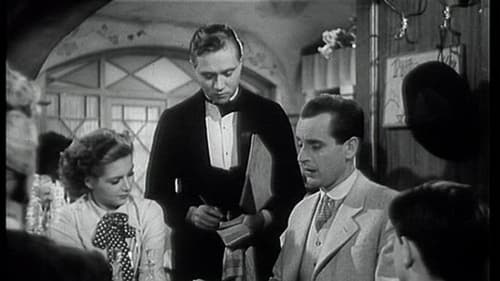
Screenplay

Story

Creative Producer

Screenplay
A fiction piece centered around the Czech resistance to the Nazis.

Creative Producer
A fiction piece centered around the Czech resistance to the Nazis.

Director
A fiction piece centered around the Czech resistance to the Nazis.

Creative Producer

Creative Producer

Creative Producer
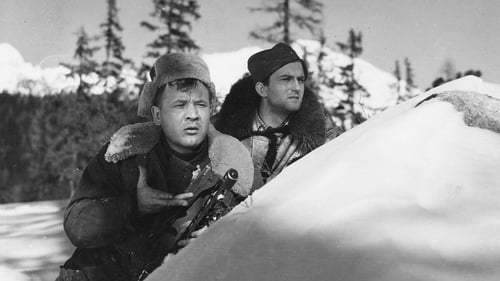
Creative Producer
A young doctor and a group of injured are hiding in an underground shelter and are liberated by Soviet soldiers.

Creative Producer

Creative Producer
Wild Beasts
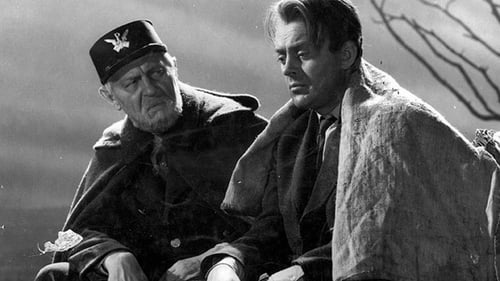
Creative Producer
Based on the novel by Karel Capek, the prominent Czech writer of the early 20th century who coined the word robot for his play R.U.R., the story revolves around a discovery of Krakatit - a powerful explosive - by Prokop, an experimental scientist who, following an accidental explosion in his lab, slips in and out of delirium. When he realises that, in a delirious period, he has given the formula for making Krakatit to one of his colleagues, he tries to find the man, who does not realize how dangerous a thing Krakatit is. In the process, he nearly gives his discovery away again to foreign interests, a group of anarchists, and even greater forces of darkness...

Screenplay
Based on the novel by Karel Capek, the prominent Czech writer of the early 20th century who coined the word robot for his play R.U.R., the story revolves around a discovery of Krakatit - a powerful explosive - by Prokop, an experimental scientist who, following an accidental explosion in his lab, slips in and out of delirium. When he realises that, in a delirious period, he has given the formula for making Krakatit to one of his colleagues, he tries to find the man, who does not realize how dangerous a thing Krakatit is. In the process, he nearly gives his discovery away again to foreign interests, a group of anarchists, and even greater forces of darkness...

Director
Based on the novel by Karel Capek, the prominent Czech writer of the early 20th century who coined the word robot for his play R.U.R., the story revolves around a discovery of Krakatit - a powerful explosive - by Prokop, an experimental scientist who, following an accidental explosion in his lab, slips in and out of delirium. When he realises that, in a delirious period, he has given the formula for making Krakatit to one of his colleagues, he tries to find the man, who does not realize how dangerous a thing Krakatit is. In the process, he nearly gives his discovery away again to foreign interests, a group of anarchists, and even greater forces of darkness...
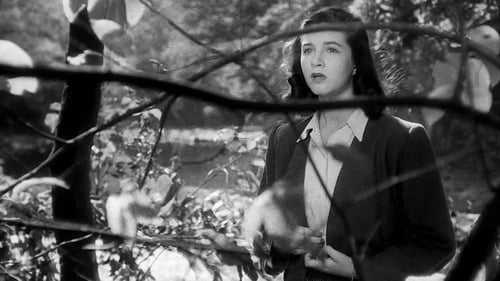
Creative Producer
A daughter of a celebrity family experiences a holiday adventure with a mysterious young man. Though she is strongly attracted to him, she is also concerned about his sinister, panicky speech, his fierce charisma.

Screenplay
A daughter of a celebrity family experiences a holiday adventure with a mysterious young man. Though she is strongly attracted to him, she is also concerned about his sinister, panicky speech, his fierce charisma.

Director
A daughter of a celebrity family experiences a holiday adventure with a mysterious young man. Though she is strongly attracted to him, she is also concerned about his sinister, panicky speech, his fierce charisma.

Screenplay
Shown in Cannes 1946.

Director
Shown in Cannes 1946.

Screenplay

Idea

Director

Screenplay
Prague, the beginning of the 17th century. Rozina falls in love with Italian glass worker Nikolo, but after returning home, she gets a message that will never come to Prague. She falls for the promise of an older man to marry her, but when Nikolo does return, the tragic fate of Rozina is sealed.

Director
Prague, the beginning of the 17th century. Rozina falls in love with Italian glass worker Nikolo, but after returning home, she gets a message that will never come to Prague. She falls for the promise of an older man to marry her, but when Nikolo does return, the tragic fate of Rozina is sealed.

Screenplay

Idea

Director

Screenplay

Idea

Director

Screenplay
Filmed during the Nazi occupation, this panoramic drama set in a Prague department store follows the divergent destinies of four female coworkers, each of whom seeks happiness in a different way.

Director
Filmed during the Nazi occupation, this panoramic drama set in a Prague department store follows the divergent destinies of four female coworkers, each of whom seeks happiness in a different way.

Screenplay

Director

Screenplay

Director

Screenplay

Director

Screenplay
Ríša, a student of law, neglects his studies in favour of parties and pranks. His angry father refuses to continue helping him out of his debts. Ríša, however, is not entirely beyond hope. He decides to go and stay for a while with his uncle, a priest, who lives in Moravia, in order to prepare for his exams. He meets Helenka, the timid daughter of the local gamekeeper, at a village ball and is enchanted by her. The days pass and their idyllic relationship begins to tire Ríša. He begins to tell Helenka about his former debauched life the about the broken hearts of beautiful women. Helenka is hurt and refuses to see Ríša anymore. His uncle, the priest, is incensed at his behaviour and orders his nephew out of the house. Ríša tries desperately to find Helenka so he can make it up to her.

Director
Ríša, a student of law, neglects his studies in favour of parties and pranks. His angry father refuses to continue helping him out of his debts. Ríša, however, is not entirely beyond hope. He decides to go and stay for a while with his uncle, a priest, who lives in Moravia, in order to prepare for his exams. He meets Helenka, the timid daughter of the local gamekeeper, at a village ball and is enchanted by her. The days pass and their idyllic relationship begins to tire Ríša. He begins to tell Helenka about his former debauched life the about the broken hearts of beautiful women. Helenka is hurt and refuses to see Ríša anymore. His uncle, the priest, is incensed at his behaviour and orders his nephew out of the house. Ríša tries desperately to find Helenka so he can make it up to her.

Screenplay

Director

Screenplay

Director

Screenplay
A painting of a girl from another time comes to life for it's buyer in this costume comedy.

Director
A painting of a girl from another time comes to life for it's buyer in this costume comedy.

Screenplay
When Vilem appears in the road with an unconscious young woman, it disturbs the peaceful life of three generations of the Balvínova family.

Director
When Vilem appears in the road with an unconscious young woman, it disturbs the peaceful life of three generations of the Balvínova family.

Screenplay
Venice Film Festival 1939

Director
Venice Film Festival 1939

Screenplay
A morally questionable lord comes to the aid of a working class man who is to be executed for speaking out about thieving rich scoundrels sticking it to the poor.

Director
A morally questionable lord comes to the aid of a working class man who is to be executed for speaking out about thieving rich scoundrels sticking it to the poor.

Screenplay

Screenplay

Screenplay
A student rebellion precedes revolutionary events in Prague.

Director
A student rebellion precedes revolutionary events in Prague.

Screenplay
The doomed love of a city girl caught in the vise of poverty is detailed in Vavra’s fluid, romantic work, one of the most elegant creations of the Czech Modernist era... The film lingers over its characters’ habitats and haunts, finding psychological truths in what each owns or desires, and countering every Hollywood-ready scene of gleaming restaurants and dazzling penthouses with realist moments of employment lines and crammed flats. Vavra’s classical camerawork and aura of romantic defeatism give Virginity a force comparable to the master of this genre, Hollywood’s Frank Borzage. (BAM/PFA)

Director
The doomed love of a city girl caught in the vise of poverty is detailed in Vavra’s fluid, romantic work, one of the most elegant creations of the Czech Modernist era... The film lingers over its characters’ habitats and haunts, finding psychological truths in what each owns or desires, and countering every Hollywood-ready scene of gleaming restaurants and dazzling penthouses with realist moments of employment lines and crammed flats. Vavra’s classical camerawork and aura of romantic defeatism give Virginity a force comparable to the master of this genre, Hollywood’s Frank Borzage. (BAM/PFA)

Screenplay
Professor Karas is widely known as enthusiastic propagator of the motto "Morality Above All Else". He guides his students as well as his own family to live a morally decent life. One day he has an unexpected visit. It's his illegitimate daughter Vera, who is proof of his thoughtless youth. Mr. Karas know that she can ruin his image, thus he decides to keep her a secret and asks her to leave. Instead of leaving she takes a position of a governess in his own family without letting him know. Mr. Karas realizes that he must reveal the truth sooner or later, but he doesn't have enough courage to do so. As he postpones it, he is more and more scared to come to his own home.

Screenplay
Slightly ironic comedy of wretches, who come to understand the rich and are able to accept charity, and also about how love and work prevail over the factory owner's son.

Director
Slightly ironic comedy of wretches, who come to understand the rich and are able to accept charity, and also about how love and work prevail over the factory owner's son.

Writer
A poor dog catcher in Prague takes up an orphan's boy who finds his favorite bull with him, with himself, until both find a better home, finally, with a rich family. - In antiquated style with put on warmth told comedy.

Screenplay

Story

Screenplay

Screenplay

Screenplay

Screenplay

Screenplay

Screenplay

Editor
A man and a woman meet on the streetcar. Six years ago, they were close . . .

Screenplay
A man and a woman meet on the streetcar. Six years ago, they were close . . .

Director
A man and a woman meet on the streetcar. Six years ago, they were close . . .

Editor
A 13-minute documentary film depicting life in Prague.

Screenplay
A 13-minute documentary film depicting life in Prague.

Story
A 13-minute documentary film depicting life in Prague.

Director
A 13-minute documentary film depicting life in Prague.

Screenplay

Screenplay

Director

Director

Editor
Zdenek Pešánek created the first public kinetic sculpture, for the power station in Prague. This short experimental film focuses on a kinetic sculpture by Zdenek Pešánek. For a period of eight years it issued beams of light from the outside wall of a transformer station at Prague’s power utility before its destruction in 1939. Though genuine, these shots seem abstract to us. They are a rhythmically assembled ode to the light-creating devices and phenomena of electricity. Light arcs, coils, bulbs and various luminous elements support the alternation of positive and negative film images, creating an impressive universe of light and shade. In the 1920s, Pešánek had obtained financial support for his work with electric kinetic light art. In the 1930s, he was the first sculptor to use neon lights. He built several kinetic light pianos, and published a book titled “Kinetismus” in 1941. —http://www.centerforvisualmusic.org

Screenplay
Zdenek Pešánek created the first public kinetic sculpture, for the power station in Prague. This short experimental film focuses on a kinetic sculpture by Zdenek Pešánek. For a period of eight years it issued beams of light from the outside wall of a transformer station at Prague’s power utility before its destruction in 1939. Though genuine, these shots seem abstract to us. They are a rhythmically assembled ode to the light-creating devices and phenomena of electricity. Light arcs, coils, bulbs and various luminous elements support the alternation of positive and negative film images, creating an impressive universe of light and shade. In the 1920s, Pešánek had obtained financial support for his work with electric kinetic light art. In the 1930s, he was the first sculptor to use neon lights. He built several kinetic light pianos, and published a book titled “Kinetismus” in 1941. —http://www.centerforvisualmusic.org

Idea
Zdenek Pešánek created the first public kinetic sculpture, for the power station in Prague. This short experimental film focuses on a kinetic sculpture by Zdenek Pešánek. For a period of eight years it issued beams of light from the outside wall of a transformer station at Prague’s power utility before its destruction in 1939. Though genuine, these shots seem abstract to us. They are a rhythmically assembled ode to the light-creating devices and phenomena of electricity. Light arcs, coils, bulbs and various luminous elements support the alternation of positive and negative film images, creating an impressive universe of light and shade. In the 1920s, Pešánek had obtained financial support for his work with electric kinetic light art. In the 1930s, he was the first sculptor to use neon lights. He built several kinetic light pianos, and published a book titled “Kinetismus” in 1941. —http://www.centerforvisualmusic.org

Director
Zdenek Pešánek created the first public kinetic sculpture, for the power station in Prague. This short experimental film focuses on a kinetic sculpture by Zdenek Pešánek. For a period of eight years it issued beams of light from the outside wall of a transformer station at Prague’s power utility before its destruction in 1939. Though genuine, these shots seem abstract to us. They are a rhythmically assembled ode to the light-creating devices and phenomena of electricity. Light arcs, coils, bulbs and various luminous elements support the alternation of positive and negative film images, creating an impressive universe of light and shade. In the 1920s, Pešánek had obtained financial support for his work with electric kinetic light art. In the 1930s, he was the first sculptor to use neon lights. He built several kinetic light pianos, and published a book titled “Kinetismus” in 1941. —http://www.centerforvisualmusic.org

































































